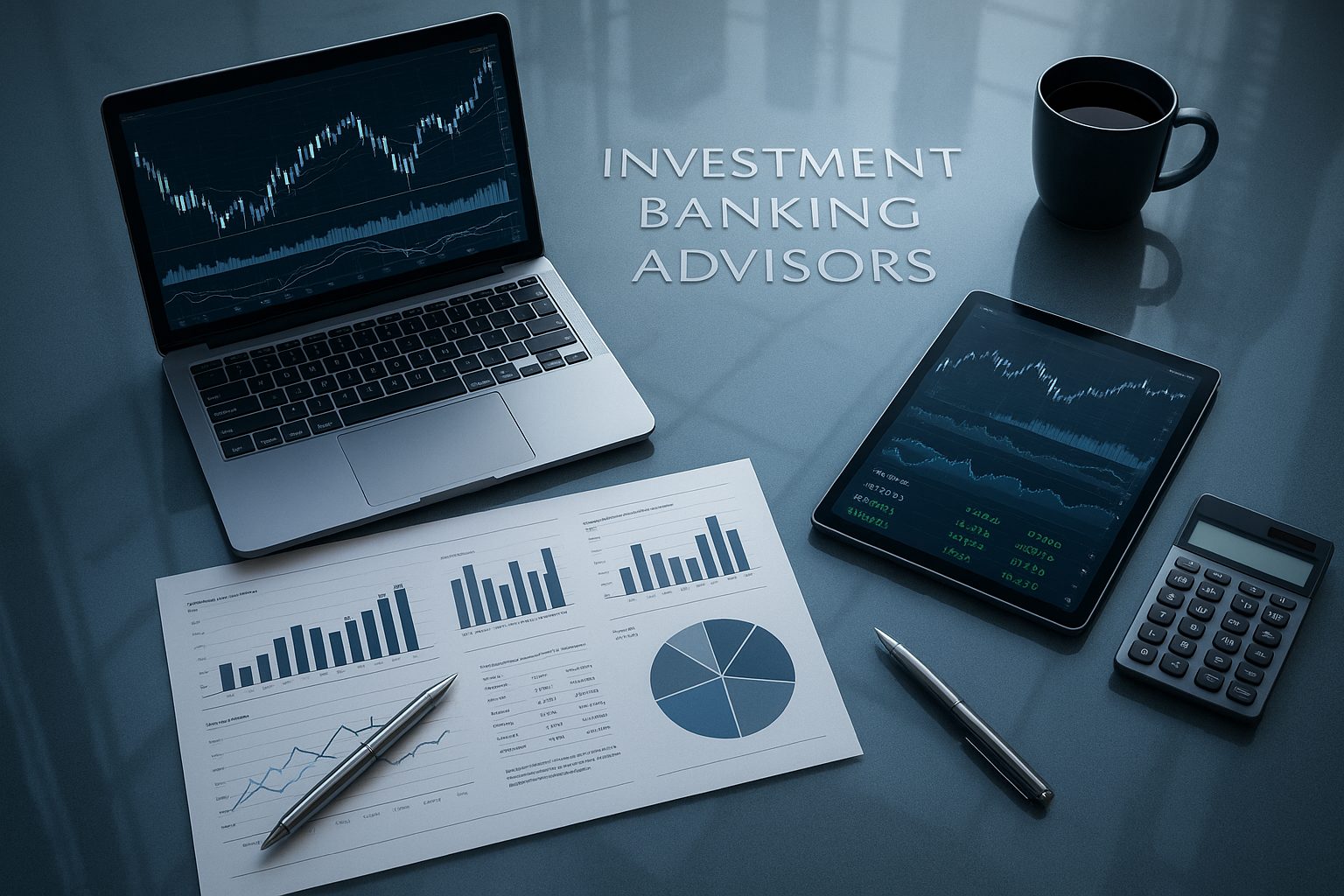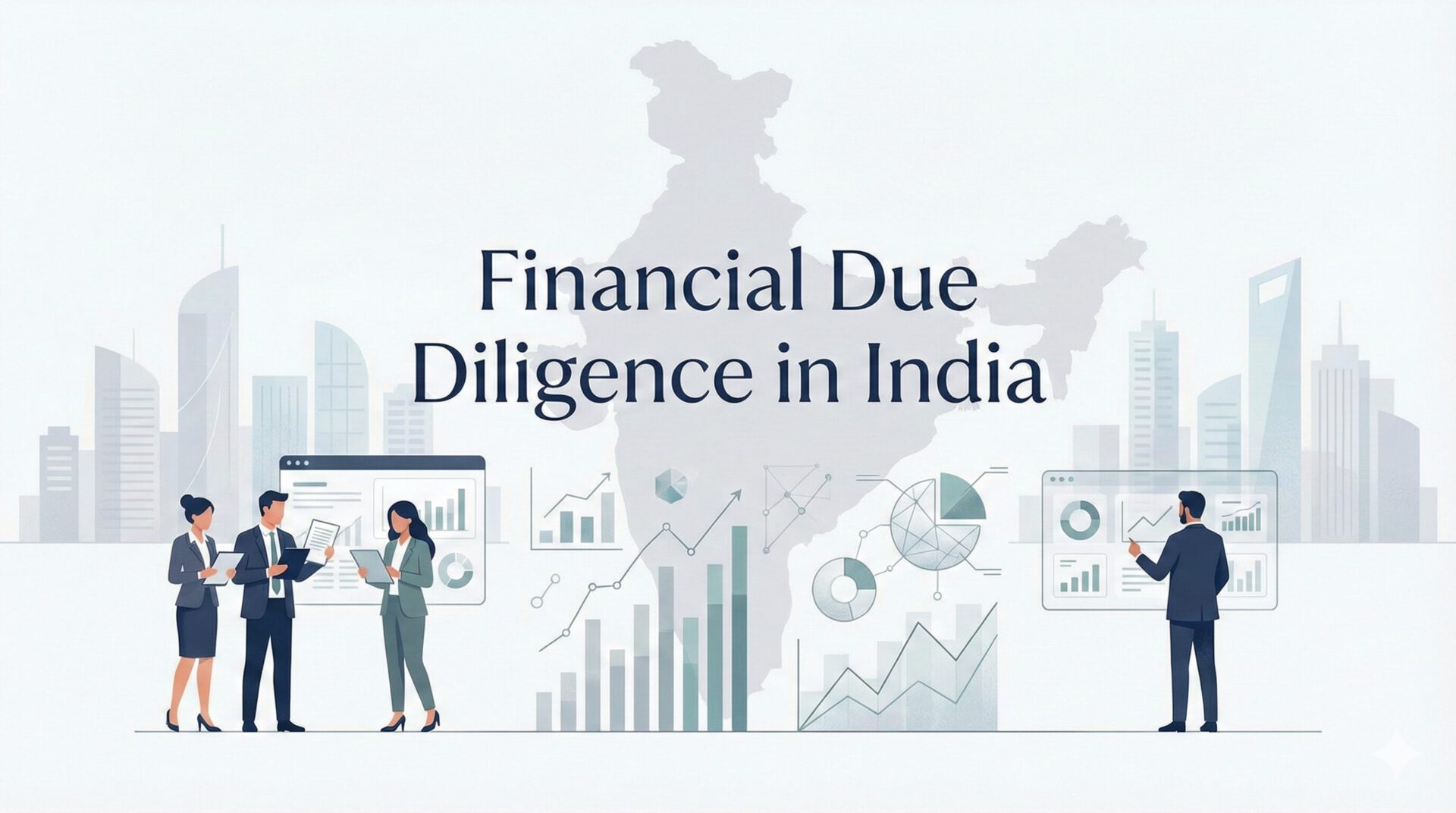How Investment Banking Advisors Drive Success and Growth
Published on 31/12/2024

Investment Banking Advisory in 2026: Trends, Tools & Trusted Strategies
The Investment Banking Sector bridges the gap between issuers and investors by advising on economic strategies and large-scale financial transactions. This sector plays a key role in the global financial ecosystem, providing services that enable businesses, governments, and organizations to make impactful financial decisions.
Investment Banking Advisors are essential to this ecosystem. Their deep knowledge of financial markets, strategic thinking, and deal execution expertise helps clients achieve major milestones such as mergers and acquisitions, raising capital, and corporate restructuring. By offering robust advisory support, they empower organizations to manage risks, seize growth opportunities, and focus on long-term business success.
Understanding Investment Banking Advisory Services
Investment Banking Advisors act as strategic financial consultants. They assist in complex corporate transactions, analyze deals, and negotiate on behalf of clients. Their advisory scope includes:
- Mergers and Acquisitions (M&A)
- Capital Raising
- Valuations
- Strategic Planning
- Risk Management
Key Areas of Expertise in Investment Banking Advisory
✅ Strategic Planning
Advisors help businesses expand, diversify, and develop long-term strategies. They assess potential risks and formulate mitigation plans while exploring new business segments or partnerships.
✅ Fund Structuring
They advise on the ideal mix of debt and equity to optimize capital structure. Advisors also assist during IPOs—determining the right amount of capital to raise, ideal timing, and pricing strategies.
✅ Compliance Support
Navigating complex regulatory frameworks like SEBI, SEC, or RBI guidelines is a major task. Advisors ensure corporate governance practices are aligned with industry and legal standards.
Investment Banking Trends in 2026
To stay competitive, businesses and advisors must adapt to the rapidly evolving financial landscape. The top investment banking trends in 2026 include:
- Rise of Green Financing & ESG Advisory: Environmental, Social, and Governance (ESG) factors are now integral to M&A, fundraising, and investor decisions.
- AI-Driven Due Diligence: Artificial Intelligence is being used to evaluate deals faster and more accurately.
- Digital IPOs & Tokenization: Blockchain is being used to issue digital shares and fractional ownership of assets.
- Cross-Border M&A Resurgence: As global markets recover, cross-border transactions are increasing.
- Greater Regulatory Scrutiny: Stricter regulations in crypto, alternative funds, and private equity require robust compliance strategies.
Fund Administration: The Backbone of Investment Success
Fund administration ensures the smooth operation of investment vehicles like mutual funds, hedge funds, and private equity.
Core Services Include:
- NAV Calculations: Determining net asset value after subtracting liabilities.
- Investor Services: Handling subscriptions, redemptions, reporting, and capital calls.
- Regulatory Reporting: Complying with SEC, SEBI, FATCA, and other regulatory bodies.
Emerging Technologies Transforming Fund Administration
🔗 Blockchain Technology
- Enables real-time record-keeping, enhances transparency, and reduces fraud.
- Automates processes like subscriptions, redemptions, and distributions.
- Facilitates tokenization of assets, allowing fractional ownership and faster transactions.
🤖 Artificial Intelligence & Machine Learning
- Automates reporting, fund analysis, and performance tracking.
- Provides real-time insights for informed, accurate decision-making.
- Enhances operational efficiency by eliminating manual errors.
Fund Accounting and Regulatory Compliance
Fund administrators oversee financial transactions, maintain internal controls, and ensure compliance. They play a key role in:
- Calculating NAVs
- Coordinating audits
- Maintaining transparency and accurate records
Challenges in Fund Accounting for Private Equity & Hedge Funds:
- Valuation of Illiquid Assets: Difficult to price accurately without liquid markets.
- Complex Structures: Tracking ownership and fund flows across layers.
- Rising Regulatory Requirements: Non-compliance can cause severe penalties.
Global Compliance Frameworks:
- AIFMD
- SEBI Regulations
- Dodd-Frank Act
- UCITS
- SEC Guidelines
Advisors ensure adherence to all legal and regulatory standards, strengthening investor confidence and protecting the firm’s reputation.
Digital Transformation in Investment Banking
Investment Banking is embracing digital transformation:
- RPA (Robotic Process Automation): Automates repetitive tasks in compliance and reporting.
- Chatbots & AI Tools: Enhance investor communication and real-time support.
- Predictive Analytics: Improves risk forecasting, deal outcomes, and client recommendations.
- Data Security Solutions: Protects sensitive client and financial data with blockchain encryption.
CFO/COO Services for Streamlined Operations
- CFO Responsibilities: Risk management, financial planning, compliance, and investor relations.
- COO Responsibilities: Day-to-day execution, human resources, process improvement.
Together, CFOs and COOs collaborate to align financial insights with operational efficiency. Their synergy drives better decisions, minimizes resource wastage, and strengthens organizational performance.
Advisors’ Role in Cost Control and Resource Allocation
Advisors help optimize financial resources by:
- Identifying cost-saving opportunities
- Prioritizing resource allocation based on impact
- Aligning short-term actions with long-term strategic goals
🔑 Key Benefits of Cost Optimization:
| Benefit | Description |
|---|---|
| Maximizes Returns | Minimizes waste and boosts profit margins. |
| Efficient Portfolio Management | Allocates funds to high-yield investments. |
| Improves Competitiveness | Supports aggressive yet profitable pricing. |
| Better Client Value | Delivers consistent and enhanced service quality. |
Investor Relations: Building Trust and Transparency
A strong investor relations strategy is essential for shaping how investors perceive your company. It fosters credibility, encourages long-term partnerships, and ensures your financial story is clearly understood.
The Importance of IRM (Investor Relationship Management):
| Aspect | Description |
|---|---|
| Capital Raising | Engages and reassures investors during IPOs and private placements. |
| Investor Confidence | Regular and honest communication builds trust. |
| Market Insights | Gathers valuable feedback from investors for better strategic planning. |
| Client Retention | Strong relationships ensure long-term loyalty and recurring investments. |
Digital Tools to Boost IRM:
| Strategy/Tool | Purpose/Description |
|---|---|
| Transparency | Regular updates on financials and company outlook. |
| Tailored Communication | Custom content based on investor profiles and preferences. |
| Proactive Engagement | Addressing concerns early and collecting investor feedback regularly. |
| Investor Relations Website | Centralized platform for investor updates and documentation. |
| Webinars & Virtual Meetings | Facilitate real-time investor engagement and Q&A sessions. |
| Email Newsletters | Regular communication with personalized company updates. |
| Social Media Updates | Share timely announcements and build brand trust. |
| CRM Tools | Track investor behavior and personalize follow-ups. |
Integrated Advisory Services: A Holistic Approach
Integrated services combine tax, compliance, investment planning, and fund strategy into one seamless solution. It connects fund administration with investor relations to ensure end-to-end value delivery.
🔍 Benefits of Integrated Advisory:
| Aspect | Description |
|---|---|
| Holistic Solutions | Customized strategies tailored to investor goals. |
| Improved Efficiency | Saves time, reduces duplication, and enhances productivity. |
| Enhanced Transparency | Accurate, consistent reporting across all touchpoints. |
| Proactive Risk Management | Identifies and mitigates threats before they affect operations. |
FAQs About Investment Banking Advisory in 2026
Q1: What does an investment banking advisor do?
A: They provide strategic financial advice on mergers, capital raising, valuations, and compliance to corporations and investors.
Q2: How is AI changing investment banking advisory?
A: AI improves deal analysis, automates reporting, and offers predictive insights, making advisors faster and more precise.
Q3: What compliance regulations must advisors follow?
A: Depending on the fund type and location, SEBI, AIFMD, Dodd-Frank, and other global regulatory guidelines apply.
Q4: What’s the difference between fund administration and fund accounting?
A: Fund administration handles the operation of the fund (investors, reporting), while fund accounting focuses on financial accuracy and NAV calculations.
Q5: How is Blockchain used in investment advisory?
A: It’s used for secure, real-time data tracking, tokenization of assets, and automating investor transactions.
Conclusion
In 2026, Investment Banking Advisors will be more important than ever. From navigating regulatory shifts to integrating cutting-edge tech, their role is vital in ensuring organizational success, investor trust, and financial sustainability.
With expertise in fund administration, regulatory compliance, digital transformation, and integrated advisory services, they empower clients to achieve lasting value.
✅ Looking for Expert Financial Advice?
Partner with Inspirigence Advisors – your trusted investment banking advisory firm. Our experienced team helps you navigate complex decisions, optimize costs, and build a sustainable, growth-oriented financial strategy.
📩 Get in touch today and transform your financial future!


